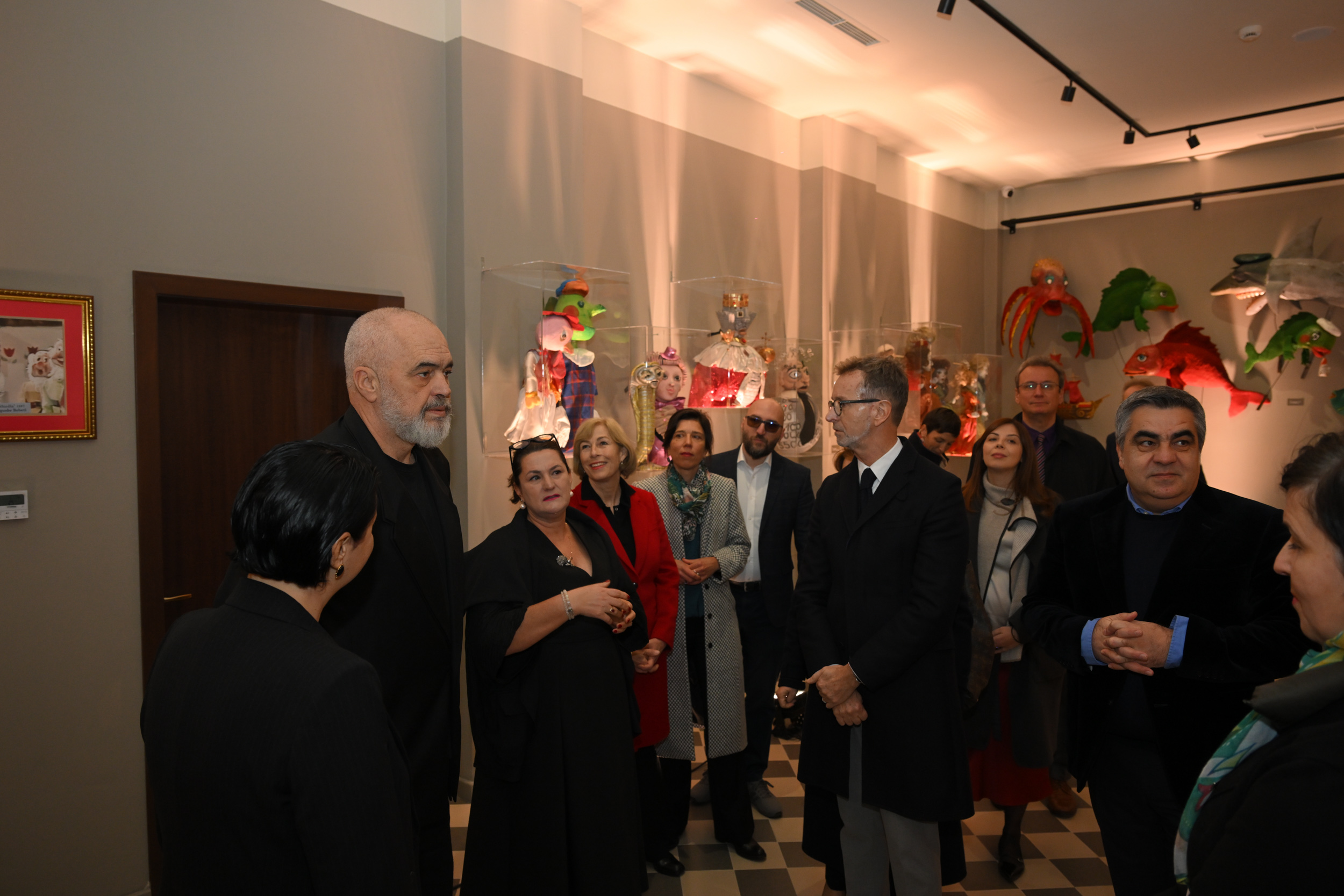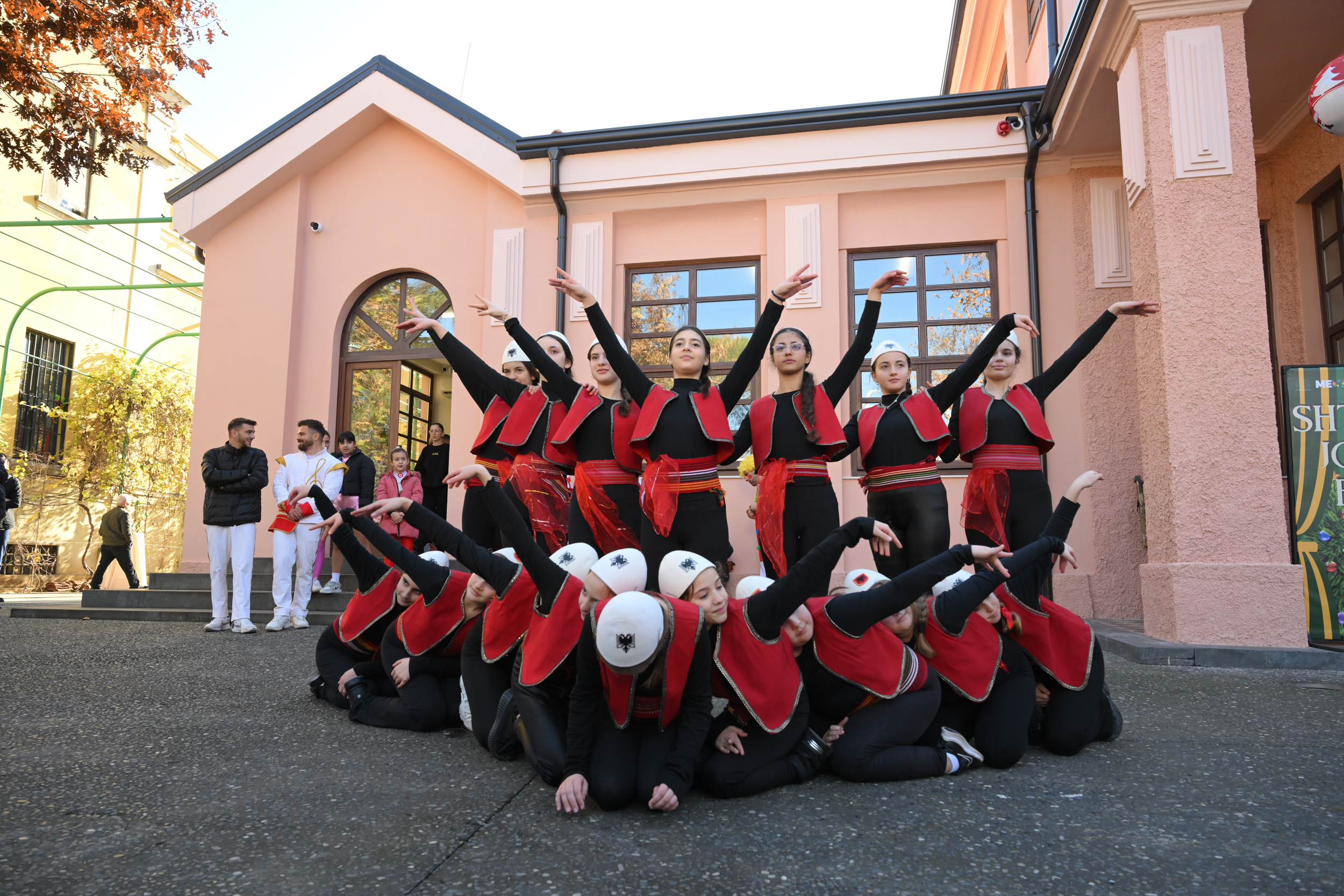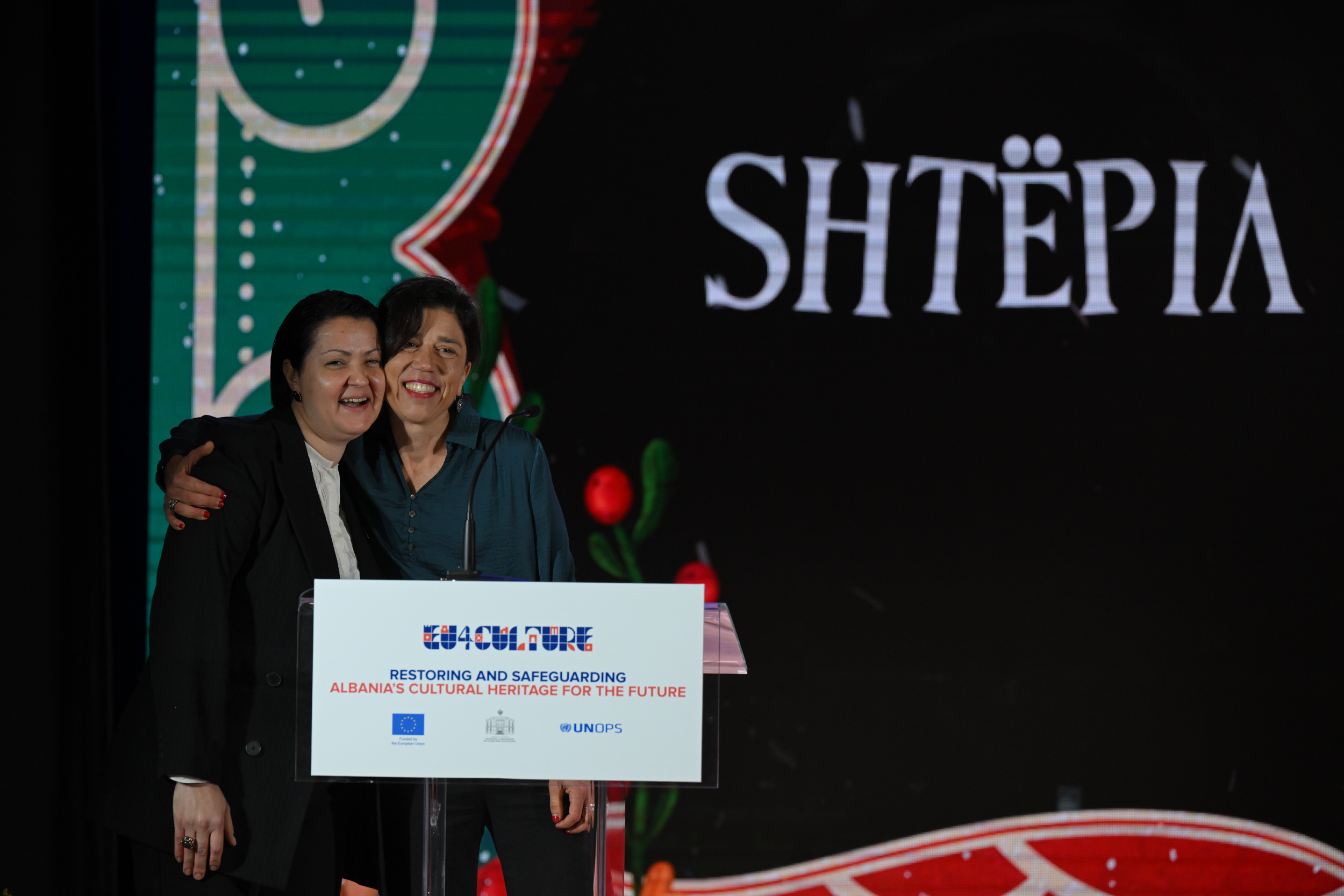Historic National Puppet Theatre Reopens Following Major Restoration
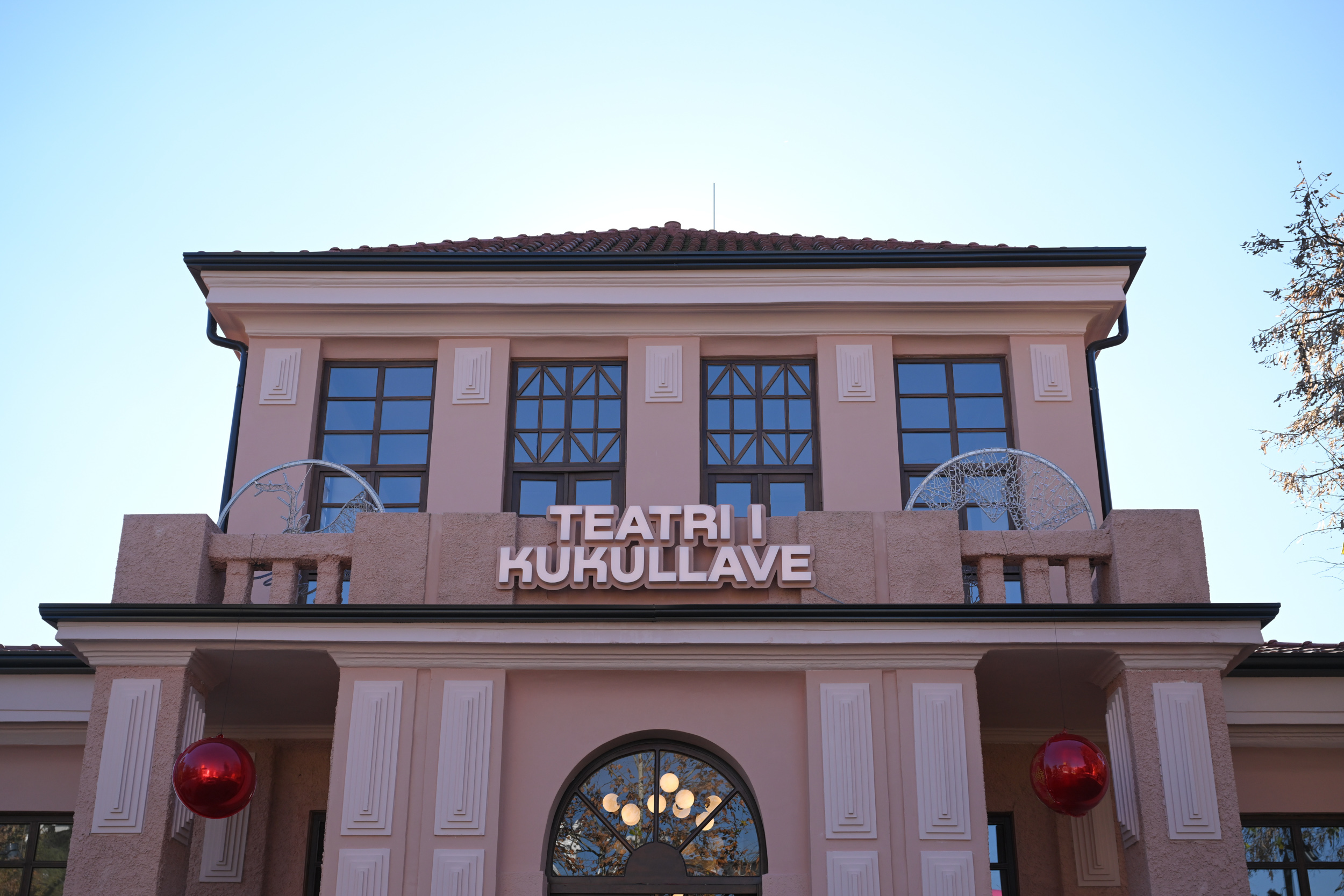
The National Puppet Theatre, one of Albania’s most cherished cultural landmarks, reopened today following extensive restoration works funded by the European Union through the EU4Culture programme. The building, which suffered significant damage during the devastating 2019 earthquake, has been transformed through a comprehensive renovation project implemented by UNOPS in partnership with Albania’s Ministry of Economy, Culture and Innovation.
Built in 1924, the building initially served as the Officers Club and later housed Albania’s first Parliament, hosting plenary sessions, government meetings, and diplomatic receptions. Since the 1960s, it has been home to the National Puppet Theatre, becoming a cultural hub deeply ingrained in the memories of generations of Albanians.
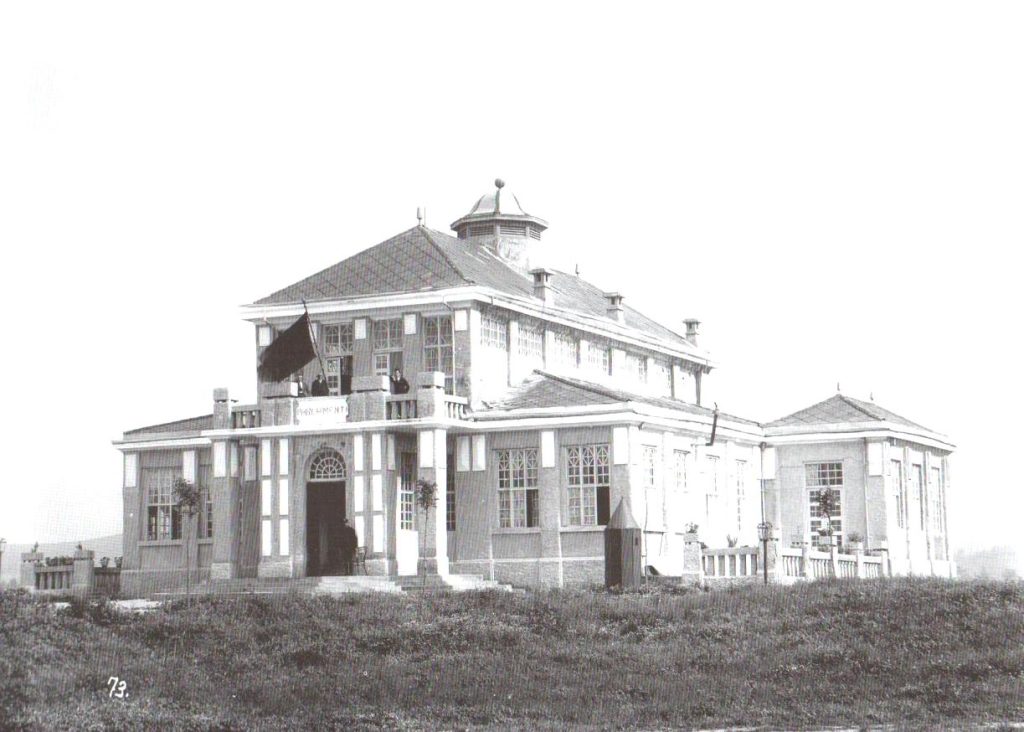
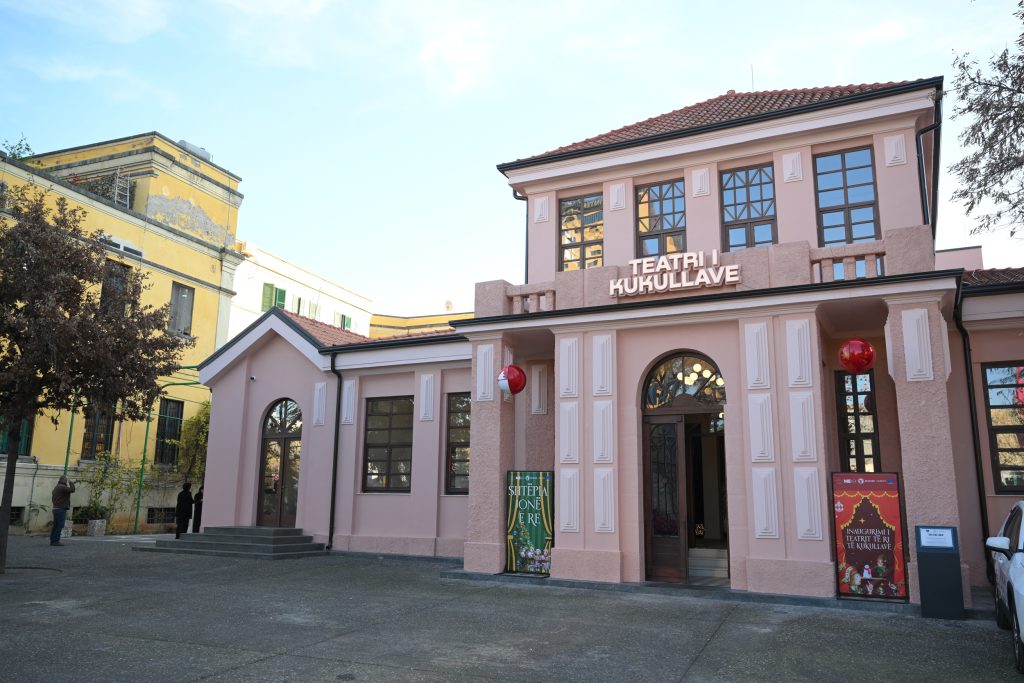
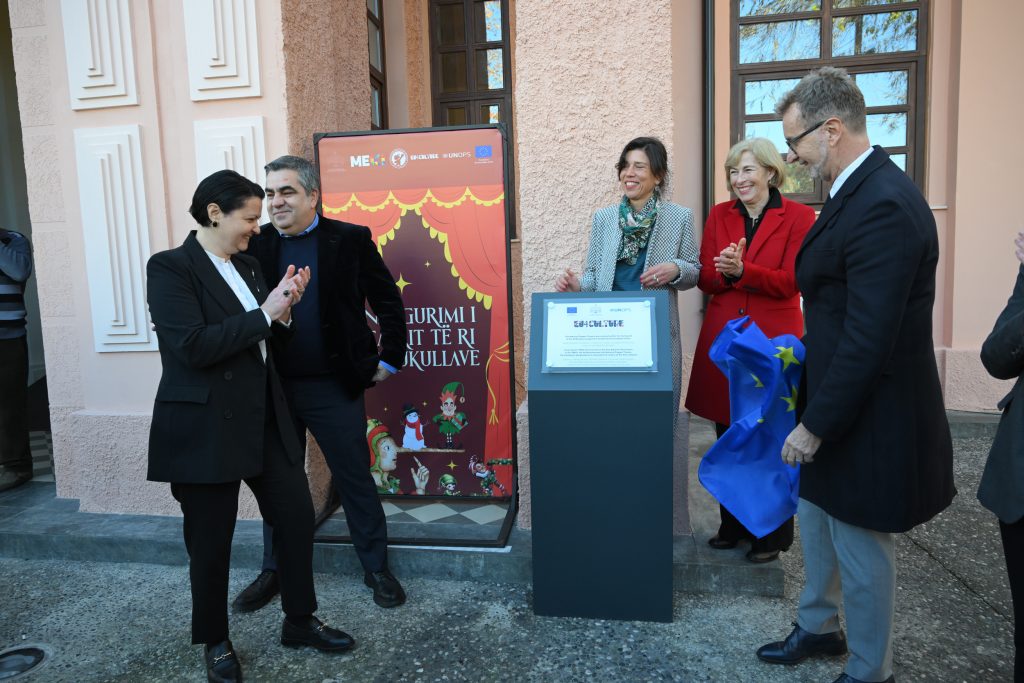
The inauguration ceremony brought together distinguished guests, including H.E. Edi Rama, Prime Minister of Albania; H.E. Silvio Gonzato, EU Ambassador to Albania; Mr. Blendi Gonxhja, Minister of Economy, Culture and Innovation; Ms. Fiona McCluney, UN Resident Coordinator; and Ms. Sabine Kania, UNOPS Country Manager.
The restoration project focused on preserving authentic elements of both the exterior and interior, with particular attention to the building’s key architectural periods from the 1920s through the early 1980s. The renovation included full restoration of the facade, reconstruction of the earthquake-damaged stage tower, and comprehensive upgrades to theater mechanisms and infrastructure.
The modernized theater, which can now accommodate up to 130 people, features state-of-the-art stage mechanisms and enhanced audio-visual performance systems while maintaining its historical character. The project addressed structural damage caused by the earthquake, including severe roof damage and structural cracks, while also resolving chronic issues such as dampness.
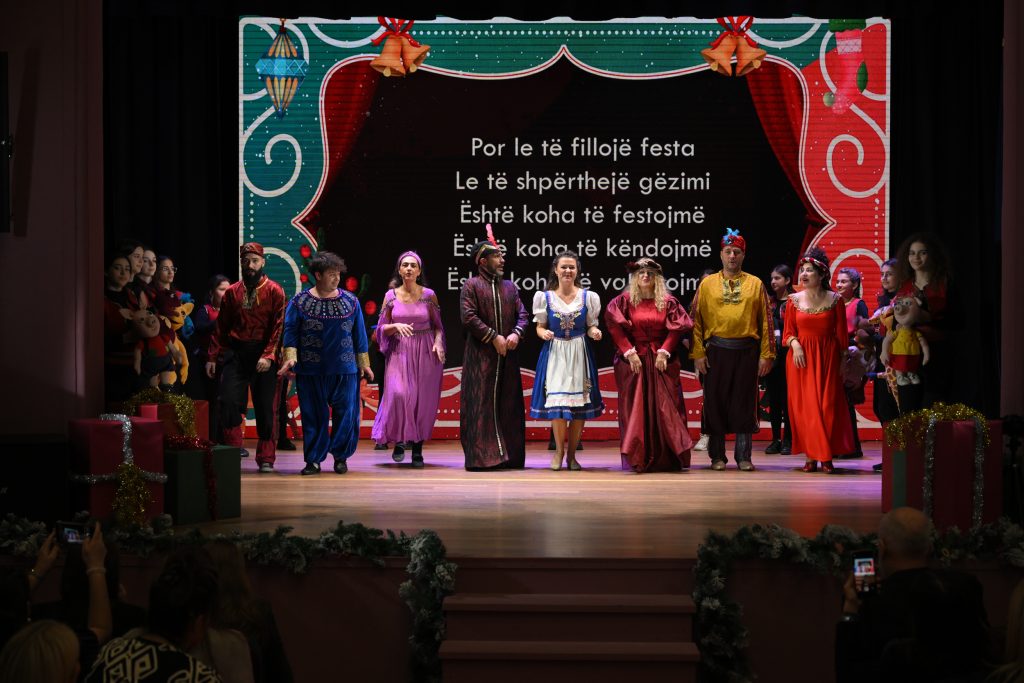
“Proud to inaugurate the National Puppet Theatre and return it to the city of Tirana and its children, who can once again enjoy its shows. This building is much more than a puppet theatre – it is a piece of Albanian history. So far, through the EU4Culture programme, we have restored 18 Albanian cultural heritage sites and work is ongoing in five other sites. It is important to preserve Albania’s cultural identity and heritage as the country makes progress towards joining the European Union. The strength of the EU lies in its diversity anchored in common values.”- noted Silvio Gonzato, EU Ambassador to Albania.
“The new Puppet Theatre is not just a new building; it is an investment in the imagination, creativity and cultural education of our children, youth and citizens. A new stage for children’s art is not just a place for performances; it is a space where dreams are developed, where fantasy is encouraged and where values are built through the power of stories and art. This Theatre will be an open window to the magical world of art, where younger generations can feel welcome and inspired. Beyond that, it adds a new cultural scene to the capital, a vibrant home for artists and the community, complementing and enriching the cultural life of Tirana.”- Mr Blendi Gonxhja, Minister of Economy, Culture, and Innovation.
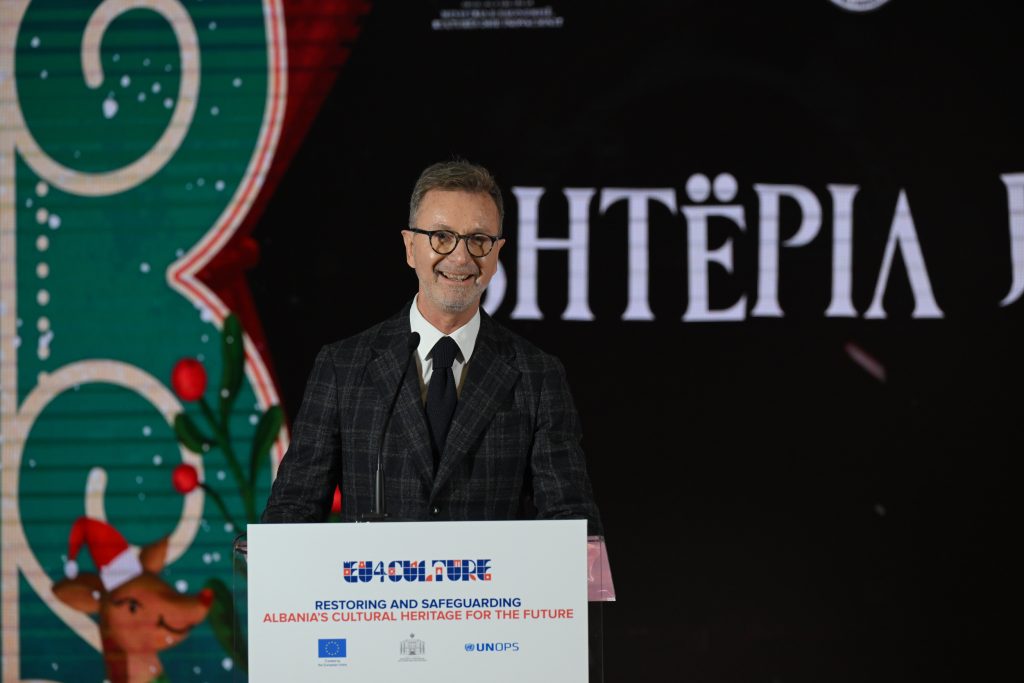
“This historical building will again be a place to bring people together, young and old, for dialogue, creativity and laughter. We are truly grateful to the European Union for their trust and generous support, and to the Government of Albania—particularly the Ministry of Economy, Culture and Innovation—for their outstanding collaboration and for entrusting UNOPS with the renovation of such an important cultural and historical treasure” noted Ms. Sabine Kania, UNOPS Country Manager.
The restoration of the National Puppet Theatre represents a significant achievement under EU4Culture, one of the largest cultural heritage programmes funded by the European Union, with a total budget of €40 million. The programme focuses on renovation and revitalization of major cultural heritage sites damaged by the 2019 earthquake while enhancing Albania’s tourism potential and contributing to local and regional socio-economic recovery.
